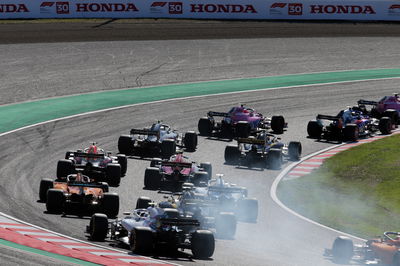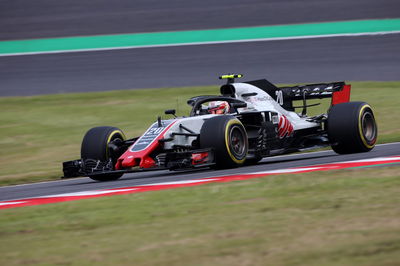Time ‘running away’ to fix 2021 F1 regulations
Toro Rosso team principal Franz Tost has warned that “time is running away” for Formula 1 to finalise the regulations for its planned overhaul in 2021.
F1 is set to introduce a raft of new sporting and technical rules - including revised engine regulations – as well as overhauling the commercial structure of the sport in a bid to increase competition between teams and improve the on-track spectacle.

Toro Rosso team principal Franz Tost has warned that “time is running away” for Formula 1 to finalise the regulations for its planned overhaul in 2021.
F1 is set to introduce a raft of new sporting and technical rules - including revised engine regulations – as well as overhauling the commercial structure of the sport in a bid to increase competition between teams and improve the on-track spectacle.
An outline of the planned power unit changes for 2021 were released earlier this year but the delay in publishing a fixed set of regulations has led to suggestions F1 should consider postponing the introduction of new engine rules.
FIA president Jean Todt has insisted F1 is “very close” to finalising the concrete regulations but Tost feels time is running out for teams and manufacturers to substantially prepare for any significant changes.
“Once more the FIA and FOM has to come up now with solutions, because time is running away,” Tost said during the Japanese Grand Prix weekend.
“We are talking about 2021 and we still don’t have a 100% fixed regulation for the chassis, and for the power unit and this needs to be clarified as soon as possible.”
One key aim of the next regulation cycle is to redistribute prize money in a way that will provide participating teams with a more equal chance at success.
Brawn recently revealed F1 is planning to introduce a ‘soft budget cap’ from next season, prior to further stages of cost control measures being phased in from 2020.
“Formula 1 is entertainment and currently, fortunately thanks to Hamilton and Vettel, we have two drivers who keep this entertainment on a higher level,” Tost added.
“But generally speaking there are three teams and the rest are far behind. That means that the FIA and FOM must come up with a regulation from the sporting side and the technical side, and they must also look that the costs come down.
“The cost cap is I think an idea that can be realised, that a minimum of five or six drivers are able to fight for the championship, because this is what the spectators want to see.
“In addition to this, there is always enough space and room for the manufacturers to develop, for example, the power unit or whatever, and that Formula 1 stays at the pinnacle of motorsports.”
‘Teams relying on F1 to deliver’
Red Bull team boss Christian Horner stressed it is imperative for the next set of regulations to improve the current product.
“Formula 1 ultimately is a show, it’s an entertainment, and to be entertaining the racing has to be good, the drivers have to be the heroes and I think we need to improve the spectacle of what we currently have,” he said.
“We’re relying very heavily on Ross Brawn and his group and the experience that he has, together with the FIA, to come up with a set of regulations, both technical and sporting, that deliver the product, that deliver the spectacle and obviously the commercial terms that are allied with that will follow.”
F1 is keen to end the current ‘two-tier championship’ and provide all competing teams with a fair chance of winning races, an aim which is backed by Sauber team principal Frederic Vasseur.
“I think that we would have to find a solution to allow talented drivers in a small team to be not too far away from the podium in exceptional circumstances,” he explained.
“Today we are far away from this. We are not racing in the same competition.”












